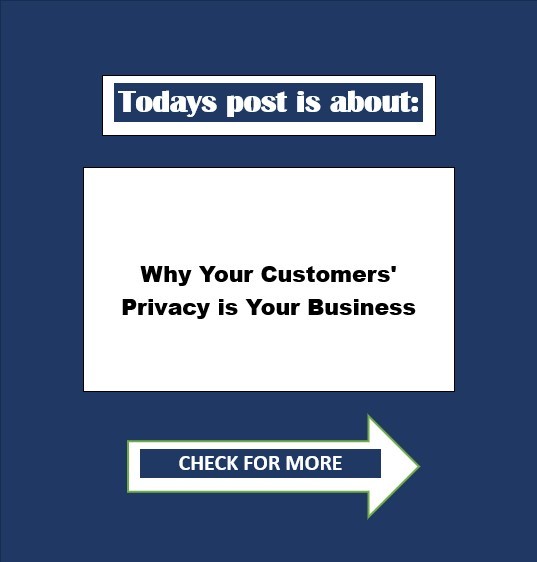#EthicalBusiness
Text


Bleeding choker on instagram🩸
#handmade jewellery online#gothicnecklace#goth core#soft goth#y2kvibes#necklace#choker#beadednecklace#bleeding necklace#blood necklace#pearljewelryset#pearl jewelry#vintage jewellery items#vampcore#vampire#white pearl#vintage for sale#ethicalbusiness#romance#pale aesthetic#grunge#grunge aesthetic
9 notes
·
View notes
Text
Taking a Stand
🤝 Join me in empowering communities and tackling MLM exploitation! 🚫💼 Discover a ground-breaking article by @xxbuddykinsxx that sheds light on the dark side of multi-level marketing schemes and offers solutions for a better future. Let's dive into the thread below 👇
#EmpowerCommunities#BreakTheCycle#MLMExposure#EthicalBusiness#Transparency#SpreadAwareness#TogetherWeCan#SupportEachOther#InclusiveSociety#Truth
3 notes
·
View notes
Quote
The earliest explanation of the empty tomb was that the disciples stole the body. This, however, has now been completely abandoned. The suggestion is impossible both psychologically and ethically. The disciples were not the sort of people who could have carried through such an enterprise, by any stretch of the imagination: nor can such a deliberate fraud be reconciled with their characters and subsequent behavior.
J.N.D. Anderson
5 notes
·
View notes
Photo

Quand vient l’été, nos plaids prennent aussi de la couleur ❤️🤍💛☀️ . . . . . . . . . . . . . . . #throw #bedthrow #blanket #bedblanket #madeinmorocco #marseille #handmade #faitmain #madebyhand #frenchdesign #slowliving #interiordesign #interiordecor #ethicalbusiness #naturalfibers #textiledesign #textiles #ecotextiles #ecointeriors #consciousbrand #smallbatch #plaid #plaidtissé #plaidmaison #plaidhome #pourmaison (à Marseille, France) https://www.instagram.com/p/CfTjWVFNRWM/?igshid=NGJjMDIxMWI=
#throw#bedthrow#blanket#bedblanket#madeinmorocco#marseille#handmade#faitmain#madebyhand#frenchdesign#slowliving#interiordesign#interiordecor#ethicalbusiness#naturalfibers#textiledesign#textiles#ecotextiles#ecointeriors#consciousbrand#smallbatch#plaid#plaidtissé#plaidmaison#plaidhome#pourmaison
5 notes
·
View notes
Text

#EtikaJewels#diamond#ethicalbusiness#ethicaljewelry#labgrowndiamond#fashion#lab created diamonds#sustainability#design#art#ootd
4 notes
·
View notes
Text
#AmazonLayoffs#TechIndustry#FutureOfWork#CorporateRestructuring#EmployeeEmpowerment#ReskillingInitiatives#EthicalBusiness#CorporateSocialResponsibility#WorkforceDevelopment#InnovationAndAdaptation#TechTrends#SocialImpact#JobTransition#CareerDevelopment#CommunitySupport
0 notes
Text
Google’s Fires 20 More Workers Amid Protests Over Israeli Cloud Contract

(Source-AP Photo_Terry Chea))
Google’s has escalated its response to employee protests regarding its cloud-computing agreement with the Israeli government by terminating an additional 20 workers, as confirmed by the organizing group. The group, No Tech for Apartheid, revealed on Monday evening that Google’s recent firings, combined with previous terminations, now total 50.
Allegations of unfair dismissals have emerged, with No Tech for Apartheid asserting that some of the workers fired were merely bystanders during last week’s sit-in protests. These individuals, the group claims, were not actively engaged in the workplace activism that led to their termination. Describing the mass firings as “an aggressive and desperate act of retaliation,” the group condemned Google’s actions.
Allegations of Unfair Dismissals
A Google spokesperson, in response, acknowledged the additional terminations but declined to disclose specific figures regarding the total number of dismissals related to the protests. The spokesperson emphasized that the firings resulted from an investigation into the physical disruptions during the protests on April 16. According to the spokesperson, all terminated employees were directly involved in disruptive activities within Google’s premises, a claim vehemently contested by protest organizers.
No Tech for Apartheid characterized Google’s actions as a manifestation of executive embarrassment and a misguided attempt to suppress employee activism. The group accused the corporation of targeting individuals merely present near the protests, irrespective of their involvement in the campaign.
Workers Vow to Persist Despite Crackdown
Despite the crackdown, workers remain resolute in their commitment to advocacy within Google’s ranks. They assert their determination to continue sending a message to company executives that they will persist in their fight and refuse to yield. The ongoing protests underscore the deep-seated concerns among Google employees regarding the company’s business dealings and ethical responsibilities.
The backdrop to these protests is the contentious cloud-computing contract between Google and the Israeli government, which has drawn criticism and sparked demonstrations. The timing of the protests coincides with escalating violence in the Middle East, with significant casualties reported in both Israel and Gaza.
The deadly conflict, exacerbated by recent events, has fueled widespread outrage and activism, both within Google and across various sectors of society. The civilian toll, particularly in Gaza, has ignited debates over the ethical implications of corporate partnerships with governments involved in military actions. As tensions persist and public sentiment remains divided, the determination of Google employees to hold the company accountable reflects broader societal concerns regarding corporate responsibility and ethical decision-making in a global context.
Also Read: GM Beats Wall Street Expectations, Raises Annual Forecast
0 notes
Text
Why Your Customers' Privacy is Your Business
Our lives are intertwined with digital technologies and protecting personal data has become a crucial issue. If you’re a business owner in the UK aiming to win over customer loyalty, it’s time to recognize the pivotal role of data privacy.
Let’s dive into why it matters and how you can earn trust by safeguarding your customers’ information.
Why Data Privacy is Essential
Think about it: How…

View On WordPress
#AdvocacyMatters#BrandLoyalty#ConsentManagement#ConsumerTrust#CustomerExperience#CustomerLoyalty#Cybersecurity#DataHandling#dataprivacy#datasecurity#EthicalBusiness#GDPRCompliance#lexdexsolutions#PersonalDataProtection#PrivacyMeasures#PrivacyPolicies#RelationshipBuilding#ReputationManagement#TransparencyMatters#TrustBuilding#UKRegulations
0 notes
Text
Discover 1500+ Business Ethics Posts on Brands.live

Explore a wide variety of Business Ethics Posters and Flyers on Brands.live with over options to choose from.
Create stunning Business Ethics Banners, Business Logos and Social Media Posts for your next project using beautiful and Royalty-Free Photos related to business Ethics.
Start enhancing your Business Ethics initiatives today with Brands.live.
Utilise our Poster maker App, related to Canva, to create stunning templates effortlessly.
✓ Free for Commercial Use
✓ High-Quality Images.
#BusinessEthics#EthicalExcellence#PosterMakerApp#FreeTemplates#BrandsLivePosters#DownloadNow#BrandLiveMagic#SocialMediaMarketing#BusinessGrowth#branding#marketing#Brandsdotlive#EthicalBusiness
0 notes
Text
Mindful Management: Applying Spiritual Principles to Effective Leadership

Hook:
In the realm of business leadership, the concept of mindful management is gaining traction as a transformative approach to guiding organizations towards success. At its core, mindful management involves applying spiritual principles and practices to leadership, fostering a culture of compassion, authenticity, and purpose. In this article, we delve into the profound connection between spirituality and effective leadership, exploring how the integration of spiritual wisdom can elevate leadership practices and inspire positive change within organizations.
Understanding Mindful Management:
Mindful management goes beyond traditional management techniques; it embodies a holistic approach that prioritizes the well-being of individuals, communities, and the planet. Drawing upon principles of mindfulness, compassion, and interconnectedness, mindful leaders seek to cultivate a culture of awareness, empathy, and ethical decision-making within their organizations. By fostering environments where employees feel valued, supported, and inspired, mindful management lays the foundation for sustainable growth and success.
The Role of Spirituality:
Spirituality serves as the cornerstone of mindful management, providing a framework for ethical leadership and personal growth. At its essence, spirituality encompasses a deep sense of connection to something greater than oneself – whether it be a higher power, inner wisdom, or universal consciousness. By integrating spiritual principles such as presence, compassion, and authenticity into their leadership practices, mindful leaders inspire trust, foster collaboration, and empower their teams to reach their full potential.
Applying Spiritual Principles to Leadership:
Presence: Mindful leaders cultivate presence by grounding themselves in the present moment, free from distractions and preconceptions. By practicing mindfulness techniques such as meditation and deep breathing, leaders enhance their ability to listen deeply, make informed decisions, and respond thoughtfully to challenges.
Compassion: Compassion lies at the heart of mindful management, guiding leaders to prioritize the well-being of their employees and stakeholders. By demonstrating empathy, kindness, and understanding, leaders foster a culture of trust and collaboration, where individuals feel valued, supported, and motivated to contribute their best.
Authenticity: Authenticity is essential for effective leadership, as it builds trust and credibility among team members. Mindful leaders lead by example, showing up authentically and transparently in their interactions, decisions, and communications. By embracing vulnerability and authenticity, leaders create environments where honesty and openness are celebrated, fostering deeper connections and engagement.
Purpose: Mindful leaders align their actions with a higher purpose, guiding their organizations towards meaningful goals and values. By articulating a clear vision and mission that resonates with employees' values and aspirations, leaders inspire passion, commitment, and dedication, driving performance and innovation.
Ethical Decision-Making: Ethical decision-making is a hallmark of mindful management, as leaders prioritize integrity, fairness, and social responsibility in their choices. By considering the impact of their decisions on all stakeholders and the broader community, leaders ensure that their organizations operate with integrity and accountability, fostering trust and sustainability.
Benefits of Mindful Management:
Mindful management offers a host of benefits for organizations, including improved employee morale, engagement, and retention, enhanced innovation and creativity, and increased productivity and performance. By fostering environments of trust, collaboration, and purpose, mindful leaders create workplaces where individuals thrive, organizations flourish, and communities prosper.
Food For Thought:
In the fast-paced and often chaotic world of business leadership, mindful management offers a beacon of hope and inspiration. By integrating spiritual principles such as presence, compassion, authenticity, purpose, and ethical decision-making into their leadership practices, mindful leaders empower their teams to navigate uncertainty, overcome challenges, and achieve success with grace and integrity.
As we embrace the transformative power of mindful management, let us remember that true leadership is not about control or domination but about service, stewardship, and empowerment. By embodying the principles of mindful management, we can create workplaces that honor the dignity, worth, and potential of every individual, fostering a culture of harmony, creativity, and flourishing for all.
#MindfulManagement#SpiritualLeadership#EthicalBusiness#CompassionateLeadership#AuthenticLeadership#PurposeDrivenLeadership#InnovativeLeadership#WorkplaceWellness#EmployeeEngagement#SustainableSuccess#LeadershipDevelopment#MindfulnessAtWork#ConsciousLeadership#EmpoweringTeams#CultivatingCulture
0 notes
Text
Sustainable Packaging Design for Products | Eco-Friendly Solutions
Explore eco-friendly solutions for sustainable product packaging design, prioritizing environmental conservation, promoting a greener future, and meeting the growing demand for responsible consumer choices. Dive into our comprehensive range of innovative packaging materials and design options, crafted to minimize environmental impact while maximizing product protection and brand integrity. Discover how The Mend Packaging is revolutionizing the industry with its commitment to sustainability, transparency, and ethical business practices. Join us in our mission to create a more sustainable world through thoughtful packaging design and eco-conscious solutions.
#EcoFriendlyPackaging#SustainableDesign#GreenPackaging#EnvironmentalConservation#GreenerFuture#ResponsibleConsumption#SustainableSolutions#PackagingInnovation#EthicalBusiness#Sustainability#Transparency#EcoPackaging
0 notes
Text

On the occasion of 𝗪𝗼𝗿𝗹𝗱 𝗖𝗼𝗻𝘀𝘂𝗺𝗲𝗿 𝗥𝗶𝗴𝗵𝘁𝘀 𝗗𝗮𝘆, White Apple Jeans reminds us of the importance of consumers for the success of a business. Warm greetings to all on this special day.
#BeInformed#WorldConsumerRightsDay#ShareTheKnowledge#StandUpForYourRights#WorldConsumerRightsDay2024#ConsumerPower#WorldConsumerRights#InformedChoices#ConsumerProtection#ConsumerVoice#EthicalBusiness#ConsumerAwareness#WorldConsumerDay#ConsumerRightsMatter
0 notes
Text
Explore the 5 game-changing consumer trends reshaping businesses in 2024. From AI integration to sustainability, personalized experiences, and omnichannel strategies, stay ahead of the curve with insights from LBN Tech Solutions. Learn more!
#ConsumerTrends#2024Trends#AIIntegration#Sustainability#EthicalBusiness#ReviewsMatter#Personalization#OmnichannelStrategy#DigitalTransformation#CustomerExperience#BusinessInsights#LBNTechSolutions
1 note
·
View note
Text
#CorporateResponsibility#SustainableBusiness#EnvironmentalImpact#SocialInequality#EconomicJustice#BusinessEthics#ClimateChange#WorkerRights#EconomicSustainability#CorporateAccountability#HumanRights#EnvironmentalJustice#SocialImpact#EthicalBusiness#Sustainability#steinberg#austin texas
2 notes
·
View notes
Text
Navigating the Path to Corporate Transparency: The Importance of Sustainability Reporting

As societal awareness of environmental and social issues continues to grow, businesses find themselves under increasing scrutiny regarding their impact on the planet and communities. Sustainability reporting has emerged as a critical tool for organizations to transparently communicate their environmental, social, and governance (ESG) performance. In this article, we will delve into its significance, exploring its benefits, challenges, and the role it plays in fostering responsible and accountable business practices.
Understanding Sustainability Reporting
Sustainability reporting, often referred to as ESG reporting, involves the disclosure of an organization’s environmental, social, and governance performance. It goes beyond traditional financial reporting, providing stakeholders with a comprehensive view of the company’s impact on the planet, its workforce, and the broader community. The primary goal of reporting is to promote transparency, accountability, and informed decision-making among various stakeholders, including investors, customers, employees, and the public.
What are the Benefits
1. Stakeholder Engagement
Sustainability reporting enhances communication and engagement with stakeholders by providing a transparent account of a company’s environmental and social initiatives. This transparency fosters trust among investors, customers, employees, and communities, as they can make informed decisions based on a company’s commitment to sustainability.
2. Risk Mitigation
By identifying and disclosing environmental and social risks, organizations can proactively address potential issues and mitigate risks before they escalate. Reporting helps companies anticipate challenges related to climate change, supply chain disruptions, and social issues, allowing for strategic planning to minimize negative impacts.
3. Competitive Advantage
In a world where consumers are increasingly environmentally and socially conscious, reporting can be a powerful differentiator. Companies that actively embrace and communicate their commitment to sustainability are likely to attract a growing segment of consumers seeking products and services aligned with ethical and responsible practices.
4. Long-term Financial Performance
Reporting is not just about meeting ethical standards; it also has tangible financial benefits. Companies that integrate sustainability into their business strategies are better positioned to adapt to changing market conditions, regulatory requirements, and consumer preferences, leading to long-term financial resilience.
Challenges
1. Standardization and Consistency
One of the significant challenges in sustainability reporting is the lack of standardized frameworks. Various reporting standards and frameworks, such as the Global Reporting Initiative (GRI), Sustainability Accounting Standards Board (SASB), and Task Force on Climate-related Financial Disclosures (TCFD), can create confusion and inconsistency in reporting. Achieving a universal standard is crucial for comparability and credibility.
2. Data Collection and Verification
Accurate and reliable data collection is paramount for credible sustainability reporting. Many companies struggle with the collection and verification of relevant data, particularly when it comes to measuring and reporting on complex environmental and social indicators. Establishing robust data management systems and engaging in third-party verification processes can address this challenge.
3. Integration into Business Strategy
For the reporting to be truly impactful, it must be integrated into a company’s overall business strategy. Some organizations still view sustainability as a standalone initiative rather than a fundamental aspect of their operations. Achieving alignment between sustainability goals and overall business objectives is essential for meaningful and effective reporting.
4. Role of Technology in Sustainability Reporting
As organizations grapple with the challenges of sustainability reporting, technology emerges as a crucial enabler. Advanced data analytics, artificial intelligence, and blockchain technologies can streamline data collection, enhance accuracy, and provide real-time insights into a company’s ESG performance. Automation tools can facilitate the reporting process, reducing the burden on organizations and ensuring consistency in data collection and analysis.
Best Practices in Sustainability Reporting
1. Clearly Define Objectives and Metrics
Before reporting, organizations should clearly define their objectives and select relevant metrics. This ensures that the reporting process aligns with the company’s strategic goals and provides stakeholders with meaningful information.
2. Adopt Standardized Reporting Frameworks
To enhance consistency and comparability, organizations should adopt recognized and widely accepted reporting frameworks. GRI, SASB, and TCFD are among the leading frameworks that guide reporting environmental, social, and governance metrics.
3. Engage Stakeholders
Stakeholder engagement is a crucial element of meaningful sustainability reporting. Organizations should actively seek input from internal and external stakeholders to identify material issues, gather relevant data, and ensure that reporting reflects the perspectives of those affected by the company’s operations.
4. Integrate Sustainability into Governance
For the reports to be effective, it must be ingrained in the organization’s governance structure. Companies should establish clear lines of responsibility, appoint sustainability officers or committees, and ensure that the board of directors is actively engaged in overseeing and driving sustainability initiatives.
Conclusion
Sustainability reporting is not merely a corporate trend; it is a fundamental shift toward responsible and transparent business practices. As organizations navigate the complex landscape of environmental and social challenges, reporting serves as a beacon, guiding them toward a future where profit is harmonized with purpose. By embracing standardized frameworks, leveraging technology, and integrating sustainability into the core of business strategy, companies can embark on a transformative journey that not only benefits the planet and society but also secures long-term success in an increasingly conscious and interconnected world.
#sustainabilityreporting#CorporateTransparency#responsiblebusiness#ethicalbusiness#ClimateAction#sustainabledevelopmentgoals#SocialResponsibility
0 notes
Text

Our Advanced Petrochemical Lubricant Additive is a game-changer in industrial lubrication. Crafted from premium petroleum derivatives, it offers superior protection against friction, wear, and corrosion. Compatible with various base oils, it ensures seamless integration into existing systems. Tested rigorously for quality and environmental sustainability, this additive guarantees optimal performance in diverse applications. Upgrade your lubrication strategy with our Advanced Petrochemical Lubricant Additive for unmatched reliability and efficiency.
#bamboofurniture#sustainableliving#globaltrade#ecofriendlydesign#b2bcommerce#verifiedsuppliers#exportersnetwork#ethicalbusiness#marketinsights
0 notes